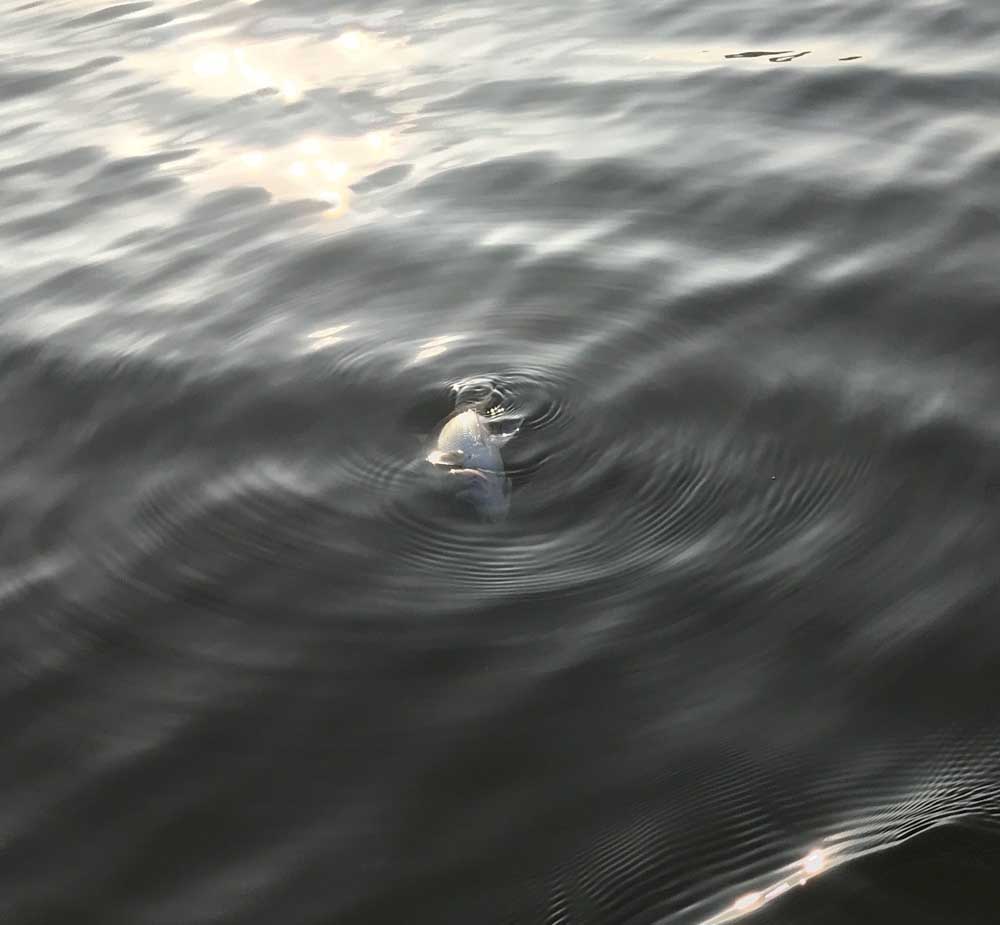TPWD searches for cause of Lake Palestine dieoff, hybrid stocking may be stopped
Published 5:46 pm Friday, May 18, 2018

- Biologists believe a disease or parasite was the cause of a lake-wide white bass and hybrid striped bass dieoff that began May 9. TPWD estimates the number of fish that died is in the tens of thousands.
LAKE PALESTINE – Fish dieoffs are concerning because visually they are pretty dramatic, but truth be told there is little that can be done about them in most cases.
That appears the case at Lake Palestine where beginning May 9 fishermen and property owners began finding dead white bass and hybrid striped bass. Although the lake has experienced major dieoffs at least twice in the past, neither was the size of this one.
Trending
“We are looking at tens of thousands (of fish),” said Richard Ott, Texas Parks and Wildlife Department Inland Fisheries Division district biologist. “At this point we don’t know if we are looking at half of the white bass population, 10 percent or 90 percent.”
The department was on the lake last week surveying the situation and discovered the extent of the dieoff was lakewide.
“What we did see was all adult fish. We did see some crappie and catfish, but I don’t think they are part of this event,” Ott said.
Because the bulk of the kill were white bass and hybrids, both within the morone species, Ott said it would seem that the dieoff was likely caused by either a parasite or disease. However, with biologists unable to locate any fish still alive to test, a definitive answer was impossible to determine.
Ott said he did rule out some type of pollution issue on the 20,000-acre lake because that would have impacted all species and would have included a single point of the pollution.
“It is odd because it was distributed all around the lake, and on one signal they all decided to die at one time. It was not like a disease that gets transmitted from one place to another place to another,” the biologist said. He added that one property owner reported picking up an estimated 250 dead fish daily from his shoreline beginning at the start of the dieoff through its peak Friday through Sunday.
Trending
Initial thoughts were that the dieoff was similar to one found on Lake Livingston annually for several years. Tests determined those were caused by a type of parasitic infection affecting the gills and spread during spawning activity. Although what triggers the infection is unknown, it has impacted morones on other lakes as well.
The Palestine dieoff also had similarities to Largemouth Bass Virus that affected largemouth bass on lakes around the state in the late 1990s.
“It was generally widespread as well. That is what made it so hard for us to track down what was happening. It was such a large scale event and no reason for it,” Ott said of the research done on LMBV.
Not found on the lake for the first decade-plus of its existence, white bass were actually illegally stocked by fishermen in 1984. As their numbers have grown through the years, they have become a popular fishery especially during spawning activity.
Palestine was considered one of the region’s better hybrid-striper lakes in the 1990s, but inconsistent stocking in the early 2000s caused by hatchery water issues resulted in a decline. With 450,000 fry and 750,000 fingerlings stocked in the lake the last five years, numbers and size have shown signs of improvement.
Without a definitive cause of the dieoff, this year’s stocking of hybrid striped bass now appears to be postponed.
“I would like to have known (the cause) before we do any stocking of hybrids in the coming weeks. The peak time for stocking is the end of May and June. We are not going to stock on top of this since we don’t know the pathogens,” Ott said.
As for the impact of the dieoff on fishing, only time will tell. Fishermen targeting white bass and hybrids will be the first to notice any major decrease. TPWD will be watching for reduced fish numbers in gill surveys this fall. A third indicator will be the size of the spawning run next winter.
While Ott believes the dieoff has run its course, for now biologists are still interested in testing a fish from the lake if fishermen come across one.
“If they can find one that is moribund but still alive and floating, get it on ice. That is what we need. Not frozen,” he explained.
To report a find, call Ott at 903-566-2161.



